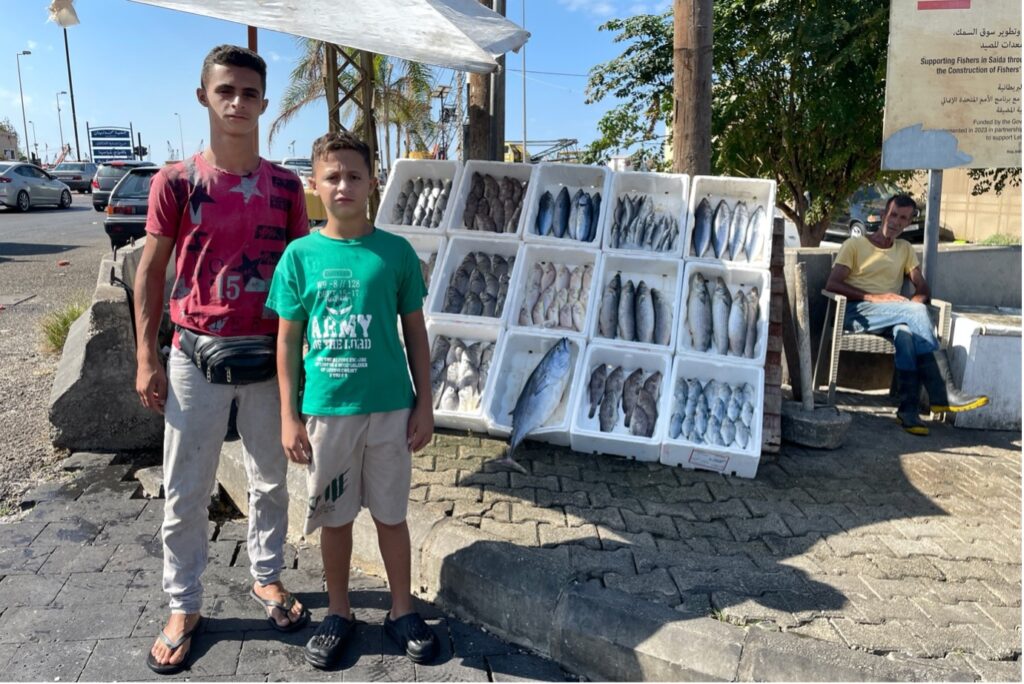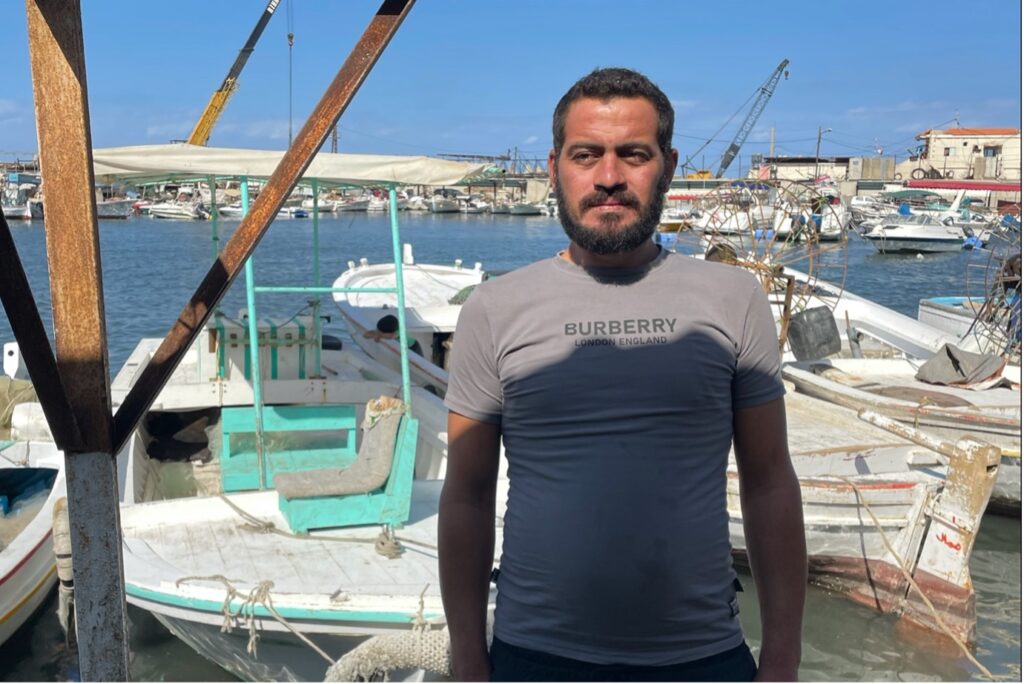The port of Saida in southern Lebanon was untypically calm for a clear day in late October. No auctioneers bellowing the price of sardines to the kilo. No gangs of seagulls assaulting the latest catch. No fishermen heading out to sea.
Khaled Bawji sat in the shade of the harbourside with a small group of fishermen, smoking, and waiting. His family have been fishermen in Saida for generations; this is not the first time their livelihoods have been threatened by war.
As a boy in 1982, he recalled when Israel’s occupation of southern Lebanon kept the Bawjis on land for six months. By 2006 Khaled was a seasoned fisherman in charge of his own vessel, but another war with Israel forced him to cast an anchor.
Now it is his grandchildren’s turn to bear witness, playing with fishing nets on the waterfront as Israeli jets fly overhead. Bawji’s boat is staying in port again.
“It’s harder now. In 2006 we received help, and money … now everyone has to help each other,” Bawji said. With no boats going out and no financial support from the government, the fishermen and their families are almost entirely dependent on their scant savings.
With no catches coming in either, the fish market has been closed for over a month now. The fishermen here would usually catch 10 to 15 kilos a day. Now, to eke out a living, fish is brought down from Tripoli or Beirut and sold on the roadside.
This is not a situation Bawji and his colleagues can sustain for long. “How long is this war going to go on for?” He asked, as though I might have some hidden insight.
A small boy, beaming proudly, approached Bawji with some small fry he snared in the port. With state schools across the country converted into displacement shelters, there are no more classes. The children of Saida, like their parents, have been left stranded by what everyone here calls “the situation.” Bawji plucked the fish out of the netting and tossed it into the water: “that’s just a baby,” he said.

A month ago, fishermen in Saida received messages on their phones warning them not to go out to sea, or else they might risk becoming a target. They said the messages were sent by Israel, which has publicly ordered tens of thousands of people to move north of the Awali River, some 60 kilometres from the border.
Saida lies just south of the Awali, within Israel’s de facto area of operations. So, after the anonymous threats and official instruction from the Lebanese army forbidding them from leaving the port, the fishermen had little choice but to moor their boats.
Kamal al-Samaak is second-in-charge of a local fishermen’s committee. Speaking with Beirut Today, he said that there were roughly 350 fishermen in Saida, each one of them with a family to feed – many with elderly parents to support too.
“The situation is extremely difficult in Saida,” al-Samaak said. “They [Israel] have prevented us from fishing. Now we are sitting at home, with no work, and nothing to do. We don’t have second jobs.”
Since Israel escalated its offensive in Lebanon on September 23, it has sought to control the movement of Lebanese civilians on land, often publishing warnings on twitter against any travel to the south.
But the same displacement orders apply to Lebanon’s southern coastal areas. As far as civilians in Saida are concerned, this amounts to a localised blockade, which is stifling a vital part of the local economy.
“Fishermen are poor, it’s a hard life. If you make a catch, you eat. If you don’t, then god help you … we live day by day,” al-Samaak said.

These cloudless, late autumn days give fishermen a chance to work and save money before the winter squalls arrive. That money would normally go towards making essential repairs to their boats, and for buying new nets and hooks in time for calmer waters.
On Tuesday, Beirut Today spoke to some of Saida’s fishermen again, to see whether after three weeks their ordeal had improved at all.
Al-Samaak said some fishermen had gone to fish in places further north, like Rmayleh, Jiyeh, and Damour, in the hope it would be safer there. Though he added: “When you go out on your boat, your heart is in your throat. You don’t know if they [Israel] will target you or not.”
In Saida, Muhammad Bilbeisi and others have started fishing near the port, feeling they have no choice but to take the risk.
“We are going out to sea now, but of course not too far. The army has said it’s our responsibility if we want to go out. You know what the situation we’re living in is like… we have no choice, we have families,” he said.


